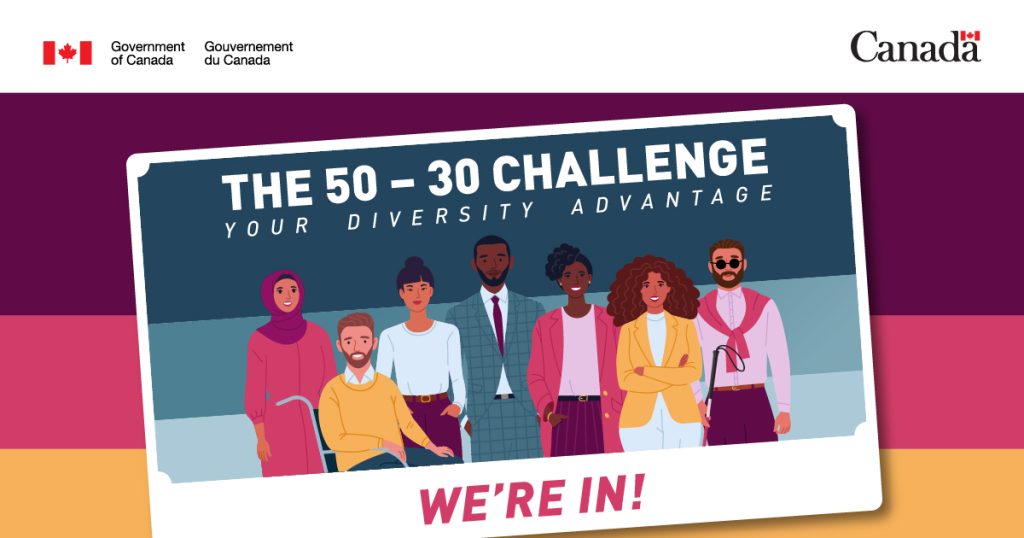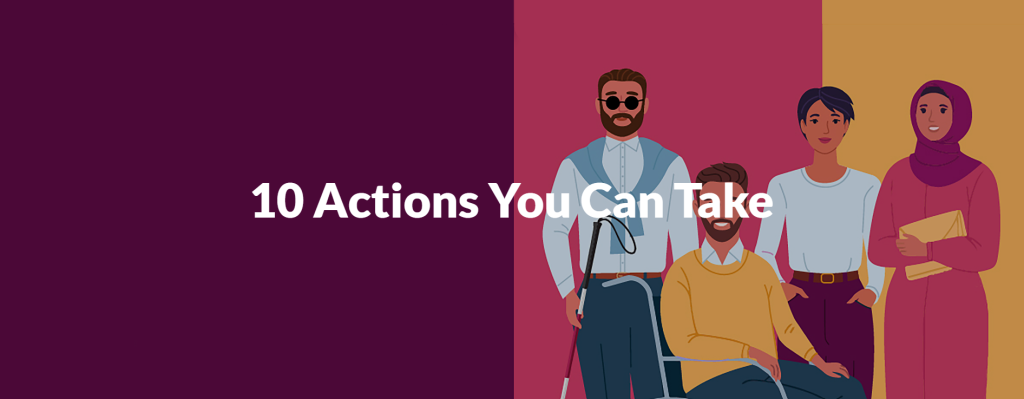LiveWorkPlay and the 50 – 30 Challenge: Part 2 of 3
The 50 – 30 Challenge is an initiative between the Government of Canada, Canadian businesses, and diversity organizations. At the time of publishing this post, there were more than 2,450 participating organizations, and more are signing up every day! LiveWorkPlay is proud to be just one of the members of that growing list.
The goal is to challenge Canadian organizations to increase the representation and inclusion of diverse groups within their workplaces, while highlighting the benefits of giving all Canadians a seat at the table.
The 50 – 30 Challenge asks that organizations aspire to two goals:
- Gender parity (50% women and/or non-binary people) on Canadian boards and/or in senior management
- Significant representation (30%) on Canadian boards and/or senior management of members of other equity-deserving groups, including those who identify as Racialized, Black, and/or People of colour (“Visible Minorities”), people with disabilities (including invisible and episodic disabilities), 2SLGBTQ+ and/or gender and sexually diverse individuals, and Aboriginal and/or Indigenous Peoples.
The Women’s Economic Council (WEC) is one of five ecosystem partners, leading the charge on the 50 – 30 Challenge. Each ecosystem partner focuses on engaging with Challenge Participants in different sectors. Beyond taking part as a Challnge Participant, LiveWorkPlay has also partnered with WEC in the role of Community Liaison Partner. It started with a call from WEC to LiveWorkPlay, with Keenan Wellar as the intitial lead representative who registered us for the challenge, and then Rebecca Coxon took over as our Project Leader in November 2022.

In Part 1 (our January posting) we shared foundational information about the project. Here in Part 2, will share more about Rebecca Coxon and Keenan Wellar’s activities on behalf of LiveWorkPlay, which also includes other ecosystem partners. In Part 3, we’ll share our own progress with the LiveWorkPlay DEI journey and the 50 – 30 Challenge.
One of Rebecca Coxon’s most significant commitments as the LiveWorkPlay lead on the 50 – 30 Challenge was completion of a 9-week fellowship program facilitated by College and Institutes Canada (CICan) and Sheridan College’s Equity Diversity and Inclusion Knowledge Mobilization Center (KMEDI). CICan is one of five eco-system partners for the 50 – 30 Challenge and has funded Sheridan’s KMEDI to help engage with participating organizations. You can get the inside scoop from the video below!
Through this fellowship, Rebecca has engaged with other leaders from the non-profit sector who are passionate about championing diversity, equity, and inclusion. In weekly meetings, breakout rooms and an in-person symposium on February 29th, Rebecca has learned and contributed to conversations on how to dismantle barriers to belonging for people from all equity deserving groups.
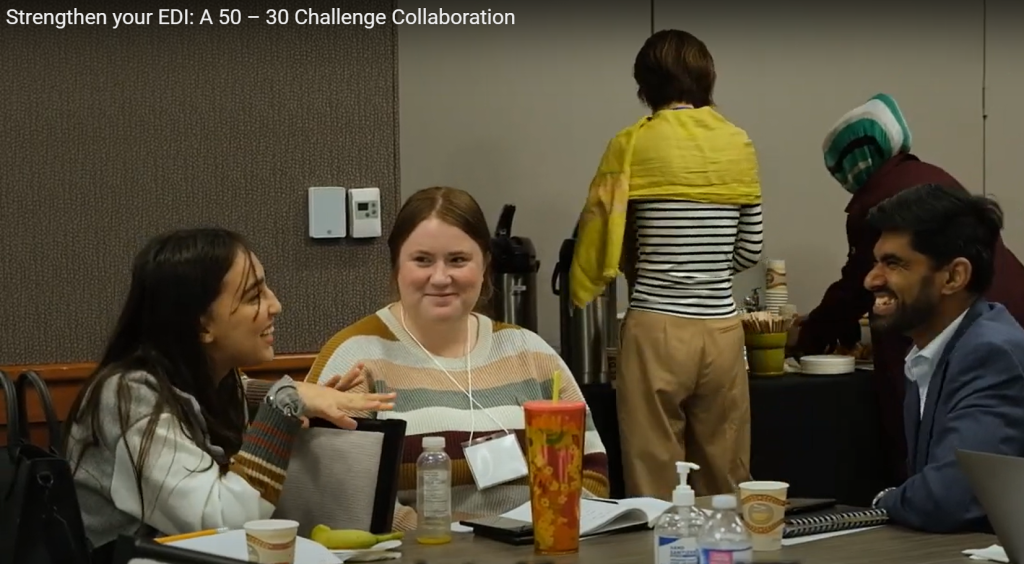
When asked about the February 29th symposium Rebecca shared “I highly value the opportunity to connect with likeminded non-profit leaders committed to EDI in their work. I gained some tangible steps forward to deepen LiveWorkPlay’s commitment to supporting people with intellectual disabilities who’s identities intersect with other equity deserving groups.”
Paired with weekly meetings Rebecca completed a series of asynchronous learning modules covering everything from foundational concepts of EDI to the importance of EDI work in non-profit boards.
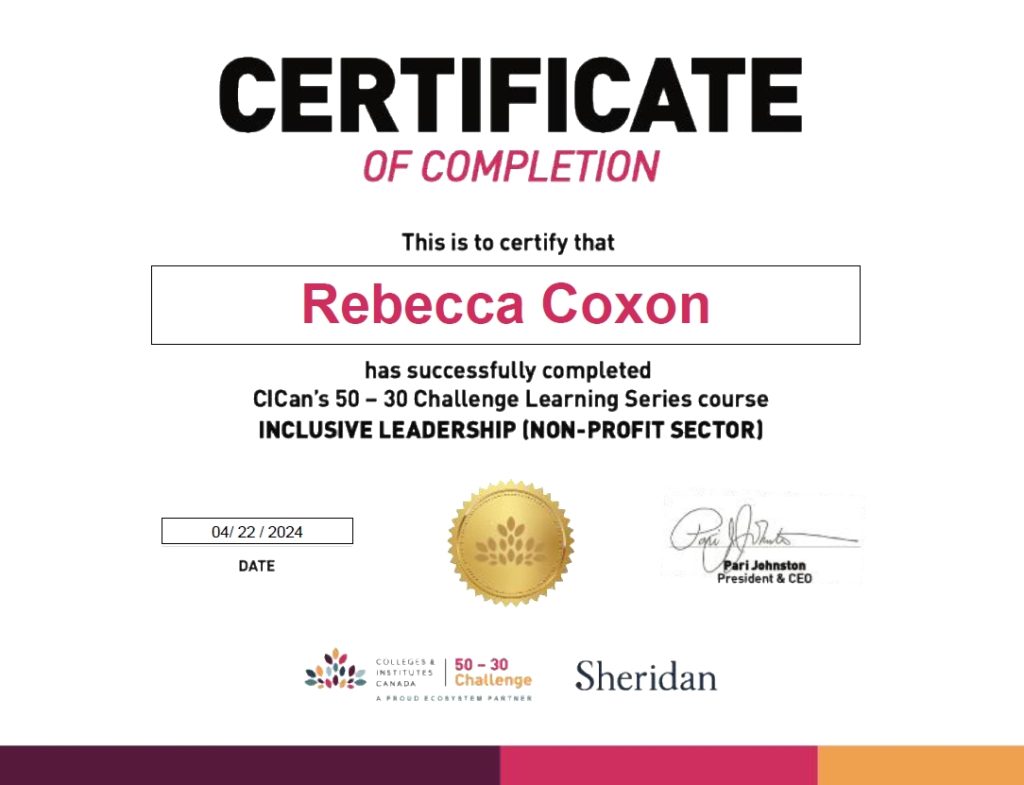
Rebecca Coxon has served many roles with LiveWorkPlay, and is currently a Team Lead for Employment Supports, working with Director Anna Nelson and a dozen employment specialists to support the hiring of people with intellectual disabilities and autistic persons with public and private sector employers in the Ottawa area.
Keenan Wellar was the initial lead for LiveWorkPlay participation in the 50 – 30 Challenge, an interim role while the organization worked out the right person to take it on for the long term.
Some recent opportunities that come to mind for Keenan would be the approximiately 6 hours of learning and training with online courses by the UN Global Compact Network Canada and the Canadian Centre for Diversity and Inclusion in support of the 50 – 30 Challenge. These included:
- DEI Fundamentals and Unconscious Bias
- Respect: Workplace Wellbeing
- Intercultural Competence
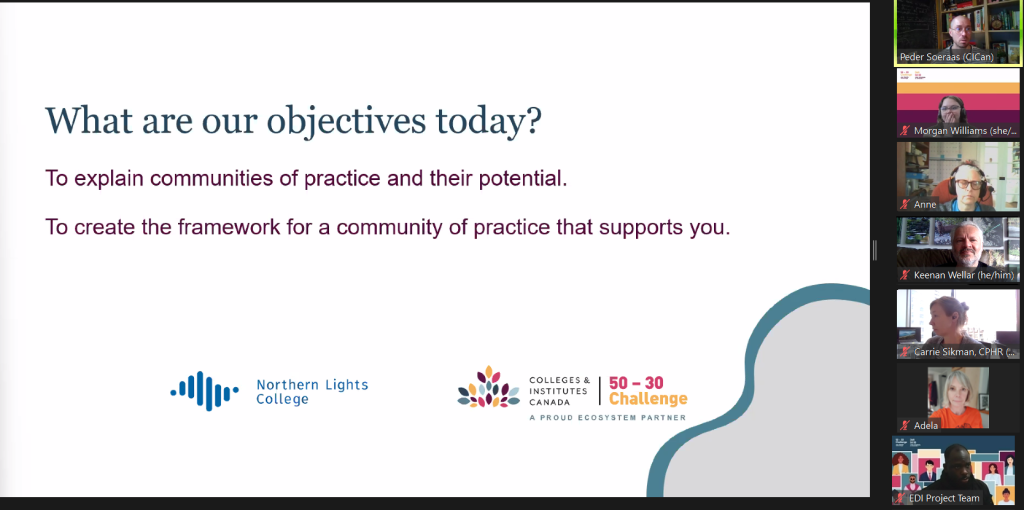
Keenan also joined a discussion about the establishment of a Community of Practice through an online event is hosted by Northern Lights College, a Hub supporting Colleges & Institutes Canada’s 50 – 30 Challenge. Keenan is currently participating as a member of the Communications Committee of the Developmental Services EDI Community of Practice in Ontario, which is hosting its first public event on March 20 as part of the Inclusion Symposium.
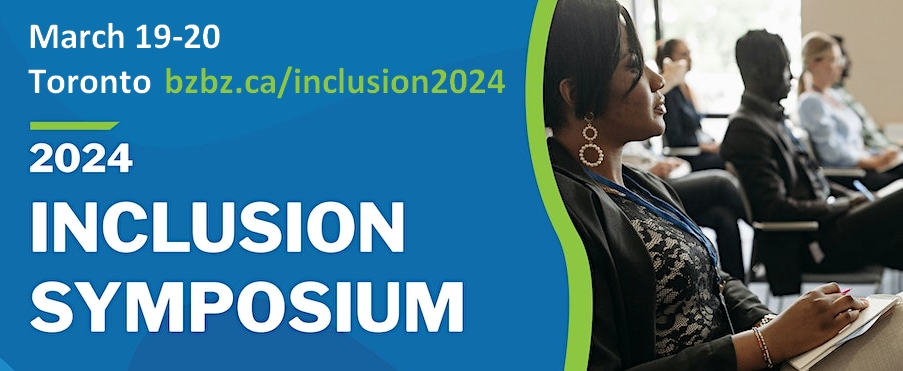
Keenan Wellar is the Co-Leader and Director of Communications with LiveWorkPlay, a role he has been honoured to serve for more than 25 years.
In March we’ll wrap up with Part 3 and talk about LiveWorkPlay and our organizations progress as part of the 50 – 30 Challenge!
Looking for more? Here is some information that may help to educate and inspire.
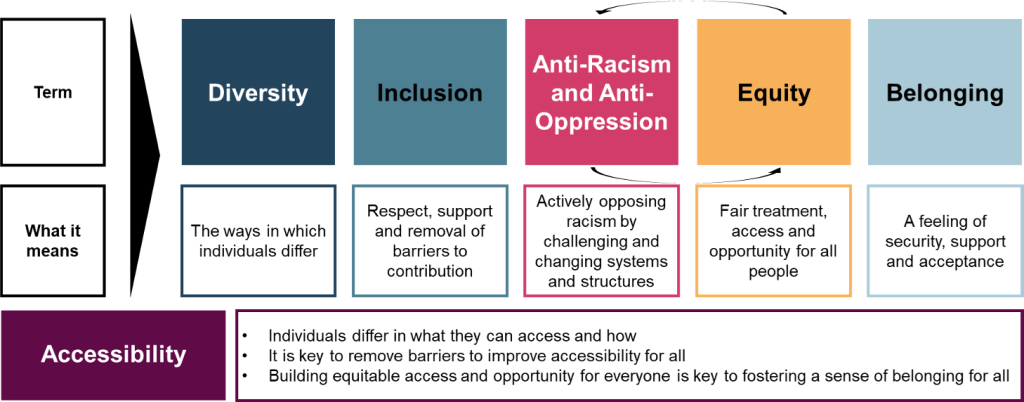
Many disability organizations are advocating for awareness and actions to ensure that people with disabilities are not a forgotten population in any Diversity, Equity, and Inclusion (DEI) strategy. Joining the challenge and taking on a Community Liaison Partner role has afforded LiveWorkPlay the opportunity to learn from others and share our own work in addressing the significant barriers to living an included life in the community for people with intellectual disabilities and autisitc persons. Whether it is income disparity, barriers to accessing affordable housing, exclusion from labour market employment, or social isolation, this is one of the most excluded groups of Canadians. It is also important to recognize the intersectionality of these issues – people with intellectual disabilities who are also members of other equity-deserving groups face additional challenges.
The DEI journey can feel overwhelming to busy organizations that are dealing with a long list of complex concerns, and a key goal of the 50-30 Challenge is to help them access the resources they need to move forward with the right tools and support.
The What Works Toolkit is a bountiful online resource designed specifically for Canadian companies and organizations who are looking to adopt DEI initiatives. The toolkit offers support for:
- policy development
- approaches for recruitment, mentorship and promotion
- employee and board member retention
- anti-racism
- anti-harassment
- inclusive workplace strategies
- success stories from real organizations
The tools you can select from are:
- 10 Actions You Can Take
- Starting the Conversation
- Talent Processes Tool
- Board and Leader Guidebook
- Guide to Sustaining Organizational Change
We’ll be back next month with Part 3! Meantime, here are Ten Actions You Can Take!
